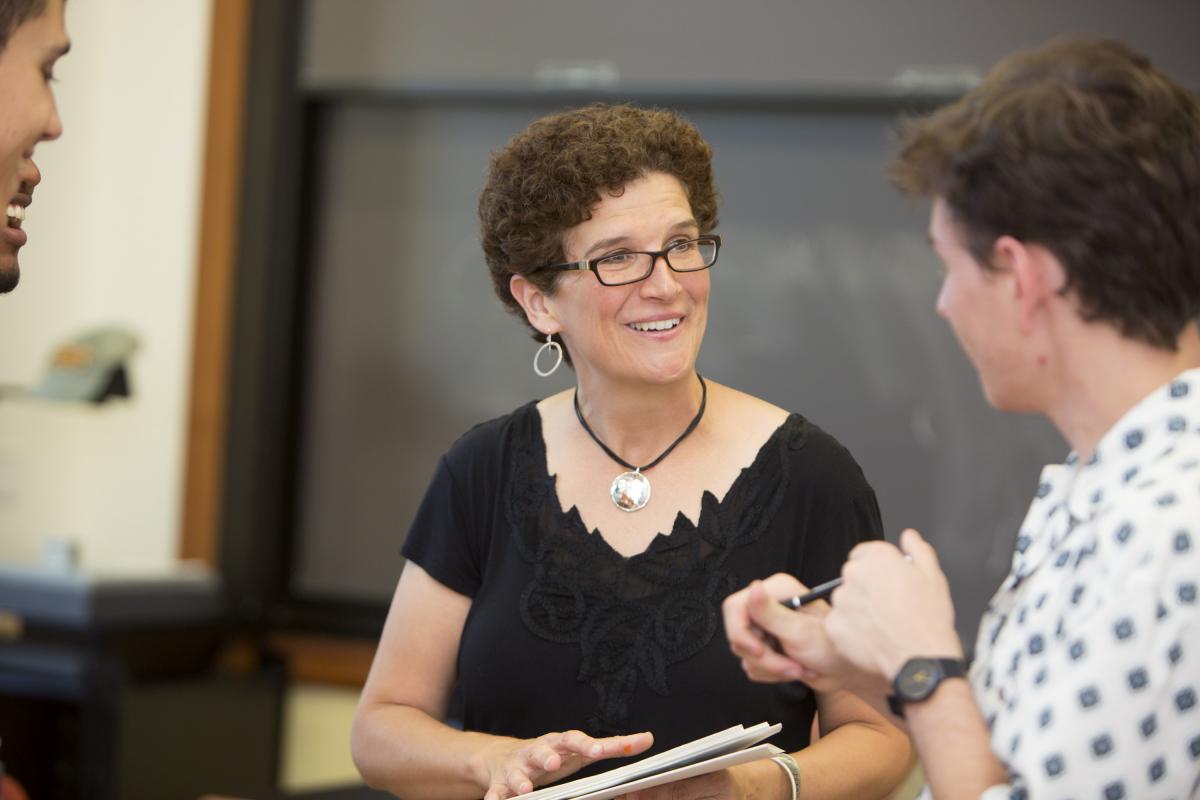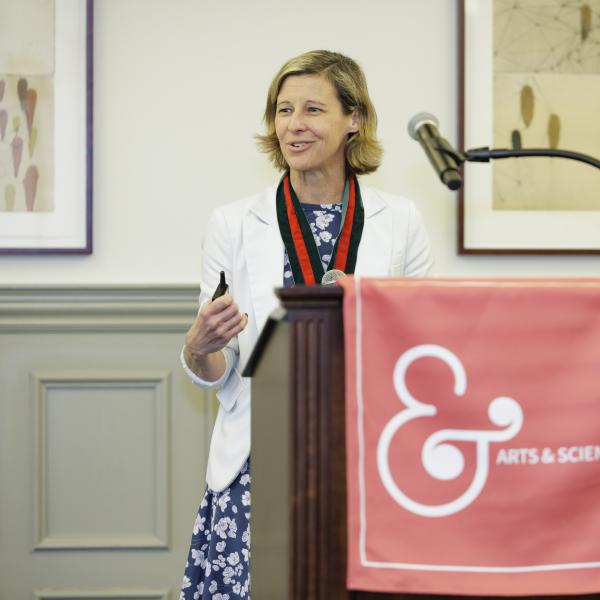The Ampersand sits down with Jill Stratton, the associate dean for undergraduate residential learning and the “dean of joy,” to discuss her work in positive psychology and flow, leadership, and building an effective classroom environment. This fall, she will be teaching the “Psychology of Young Adulthood” as well as “Leaders in Context” (a part of the Praxis Program).

Tell us a bit about yourself and your role(s) at WashU.
I hail from the great state of Kentucky, have lived here in St. Louis since 1993, and this will be my 25th year at WashU (I was a child prodigy when I arrived). I went to a small college called Transylvania University, majoring in psychology. After graduate school, I became a RCD (Residential College Director) in Park/Mudd, and that’s how I got started in my career in residential life. I oversee the Faculty Fellows and Faculty Associate Programs, and also serve as the director of the Common Reading Program.
So could you tell me a little bit more about what research you do/are passionate about?
I am interested in the relationship between emotional intelligence and leadership in college students. I like to say that I hack into college students’ brains for a living. I am also interested in the concept of flow. I’m curious about when students are in a state of flow and how they can be most successful, happier, or more joyful. I combine the research in positive psychology and the applied strategies to help not only students, but also to help community agencies thrive. I work with non-profits, educators, and organizations in the St. Louis community to help them identify and increase success.
You mentioned the concept of “flow” a couple of times. What exactly is flow?
Flow comes out of the research on positive psychology and is essentially when you’re doing a task or activity, and you are so immersed in that activity that you lose all track of time. According to Mihaly Csikszentimihalyi, the founder of the concept of flow, the goal is to be in flow as much as possible, but realistically, you can’t be in it 24/7. Flow can be found in a path of study, a hobby, a profession, or in a sporting activity. I try to take that research and help people apply it in their everyday life. For me, when your passions align with your vocational calling, then the research demonstrates that we can all be more effective and happier.
Going back to your research and interests, what is on the docket for you in the fall?
I will teach “Leaders in Context” again in the fall, and we are looking at the possibility of creating an expanded version of another class I teach called “Bad Leadership,” as there seems to be a great deal to talk about in that class. It is also the 10th year of my teaching the “Psychology of Young Adulthood” with Tim Bono, so I am excited to continue to build on that class with him.
Could you explain those classes—“Leaders in Context” and “Bad Leadership”—for those who might not be familiar?
Yes! “Leaders in Context” is one of the core courses in Praxis. It is an overview of leadership theory and understanding leadership from across different situations. It is also a course that delves deeply into personal leadership. Students have the opportunity to teach their own lesson and facilitate discussion. When I think about “Leaders in Context,” it really is a course about leadership, but also about life.
“Bad Leadership” was a class stared by Dr. Henry Biggs and is based on the work of Barbara Kellerman, who wrote the book on bad leadership. The idea is that we can learn about effective and good leadership through understanding what contributes to bad leadership. We look at case studies and also talk about the role of followership because bad leadership can’t really exist without bad followership.
One theme I notice is that you take real life examples and bring them into the classroom. Do you think that has enriched the class environment?
Oh yes, absolutely! Our lives are not divided from leadership; it is all around us. By bringing in those real-life examples, it increases the effectiveness of the class. That is really the whole idea of Praxis, applying theory to practice. The best classes incorporate the experience of students and connect it to the material.
What do you love about teaching in Arts and Sciences?
I love creating a co-learning environment with the students, and I learn as much as the students do. Every student comes in with knowledge and experiences, and learning together takes it to the next level. I love that very much, as well as seeing those “a-ha” moments such as when one student explained the process “calling people in” as opposed to calling people out. I also like to create a classroom that supports risk and facilitates courage. Everyone in my class is rooting for you, and you can see that through the full-on engagement of each student. Knowing students by name and story is exactly what I think helps me be a better teacher.



